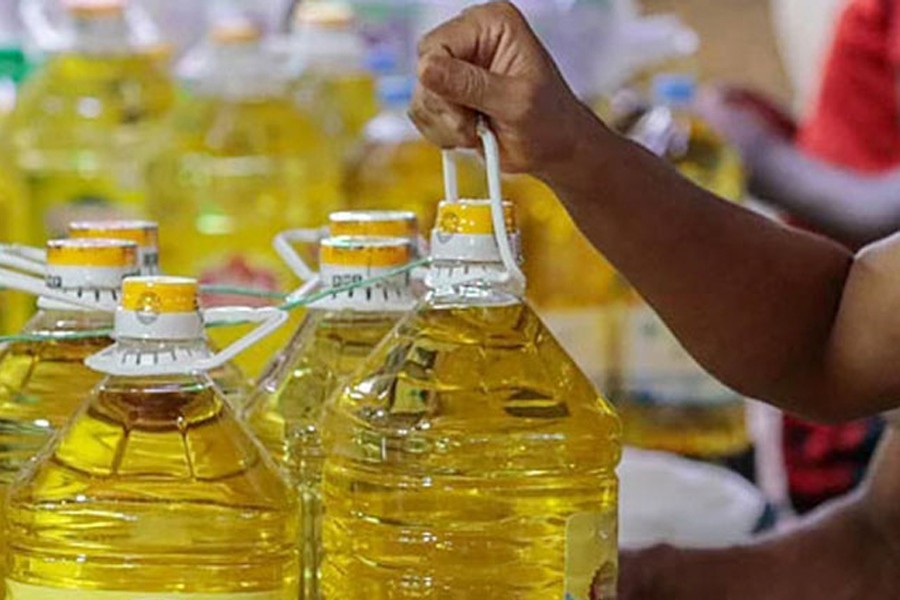
Published :
Updated :

The government has initiated a comprehensive move to develop a uniform, transparent and data-driven pricing structure, especially for soybean and palm oils, aiming to strengthen regulatory compliances and ensure fair prices.
To this effect, the Ministry of Commerce (MoC) has already assigned the Institute of Cost and Management Accountants of Bangladesh (ICMAB) to implement the same.
Following the move, the ICMAB has sought cooperation from the ministry in facilitating collections of necessary information and documents from the companies concerned, including Bangladesh Edible Oil Limited, City Edible Oil Ltd. and Sena Edible Oil Industries to ensure the timely and successful completion of this important assignment.
Keeping this in view, the companies have been asked to provide annual reports, detailed cost of goods sold (COGS) statements, month-wise process loss figures, manufacturing cost breakdowns, overhead allocation statements, input-output ratios, vendors list.
Besides, it has also been sought to collect separate costing and pricing statement on manufacturing soybean and other edible oils derived from seed crushing operations, clarification on bank interest, depreciation details include the method used for calculation and the specific heads under factory depreciation, breakdown of administrative and selling overheads, designed capacity and utilized capacity etc.
It already constituted a three-member high-profile team comprising representatives from the ICMAB regarding the issue.
The team has already visited Bangladesh Edible Oil Limited (BEOL) on October 29, 2025, City Edible Oil Ltd. (City Group) on November 4, 2025 and Sena Edible Oil Industries on November 6, 2025.
During the visits, the team met with the companies' officials to collect documents, review operational practices, and clarify any technical issues related to the costing methodology.
The ICMAB officials stated that these documents are essential for ensuring fairness and accuracy in the
uniform pricing model, which is expected to support improved regulatory oversight and more stable consumer pricing.
The team is working closely with industry representatives to verify information and ensure that the costing model accurately reflects current market realities, they also said.
A senior official at the institute said the development of a unified pricing model will benefit the entire edible oil sector by enhancing transparency, strengthening regulatory compliance, and supporting fair pricing for consumers.
He added, "We will try to prepare a pricing model so that both the parties -- consumers and edible oil companies --are benefited."
When contacted, a top executive of a leading edible oil refinery refrained from making any immediate comment on the move, saying: "We will make comment after unveiling the issue by the MoC."
However, an official claimed that edible oil refiners frequently put pressure on the government to increase cooking oil prices despite remaining edible oil prices stable in the international market.
rezamumu@gmail.com


 For all latest news, follow The Financial Express Google News channel.
For all latest news, follow The Financial Express Google News channel.